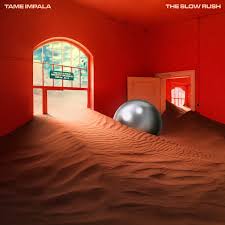TV ON THE RADIO - Nine Types Of Light
 Monday, April 18, 2011 at 11:55AM
Monday, April 18, 2011 at 11:55AM  For a band that has been defined so successfully by its artfulness, there seems to be something oddly straightforward about their fourth full-length, Nine Types Of Light. The beats are not as obviously skittish as before. The signature juxtaposition of big-moment rock and jaunty indie-funk is no longer as prevalent. All told, the album doesn't feel nearly as distinctly off-kilter.
For a band that has been defined so successfully by its artfulness, there seems to be something oddly straightforward about their fourth full-length, Nine Types Of Light. The beats are not as obviously skittish as before. The signature juxtaposition of big-moment rock and jaunty indie-funk is no longer as prevalent. All told, the album doesn't feel nearly as distinctly off-kilter.
But initial appearances can be deceiving, and this is especially the case here. For this record is really just as TV On The Radio-esque as any of their other albums, only now their unique group personality has been generally dialed back to embrace the quieter side of their music. Where on 2008's Dear Science gentler tracks like "Stork And Owl" or "Family Tree" sat in a minority to the volume (in both senses of the word) of the rest of the album, Nine Types Of Light is proudly populated mainly by ballads and introspective moments.
The record is, mind you, far from some Victorian tea party. "Caffeinated Consciousness" is as big and satisfyingly fat as they've ever been—an exhilarating romp replete with juicy horns and a wide swagger. "Repetition" takes a literal lead from its title, with singer Tunde Adebimpe's frantic reciting of "My repetition/my repetition is this!" urging the band into increasingly fierce and focus playing. But both of these heavier highlights arrive in the album's second half, after a calmer tone has largely been set.
In the space left by this reflective approach, more subtle nuances are able to flourish. Adebimpe and guitarist/vocalist Kyp Malone have never been afraid of pushing both the highest and lowest ends of their registers. This daring really pays off on Nine Types. The vocal highwire act at the end of "Keep Your Heart" is astounding in its lack of embarrassment, with Adebimpe pushing his falsetto to its absolute peak. On the back of playing and production that is rich but never overdone, the gesture—which would sound patently ridiculous on its own—elevates the song beautifully. "Killer Crane" barely gets over a slow boil, but contains a chorus that easily boasts one of their most gorgeous melodies. What's more, the track is supported by an ever-evolving cast of 'character actor' instrumentation—whether strings, guitar drones, and a host of otherworldly tones, nothing attempts to unseat the song's lead. It may register as a bit of a mid-album lag at first, but upon the fifth listen, "Killer Crane" is a mature, regal stunner.
Which is basically true of the entire record—with such a general weighting toward the band's more contemplative—and less extroverted—side, it's not surprisingly that it takes a little longer for things to register. But in certain ways, Nine Types Of Light is an even stronger statement of this group's greatness. The approach shown throughout this record isn't self-satisfaction or a lack of ideas: it's the understanding that they really can now do so much with so little. In the scheme of an entire career, I can see this becoming a real sleeper of a fave for fans of the band. It might just already be my favourite.
 Pop/Rock
Pop/Rock 

Reader Comments